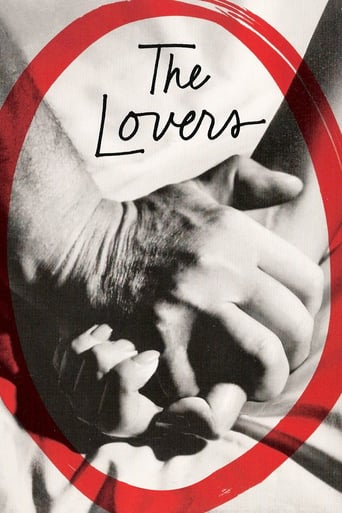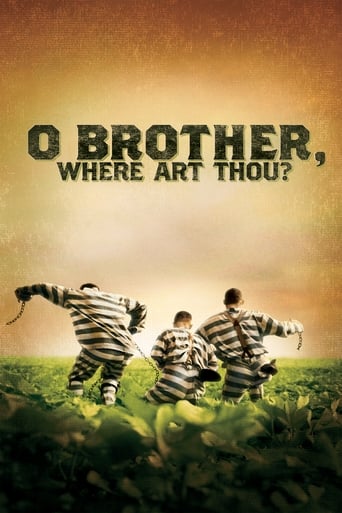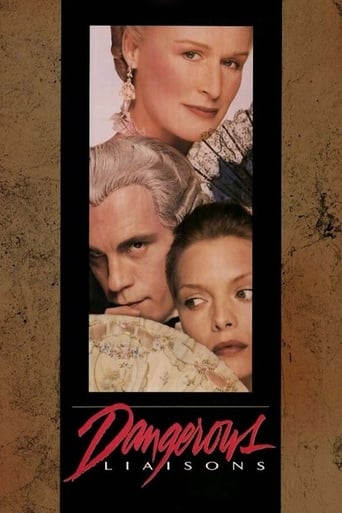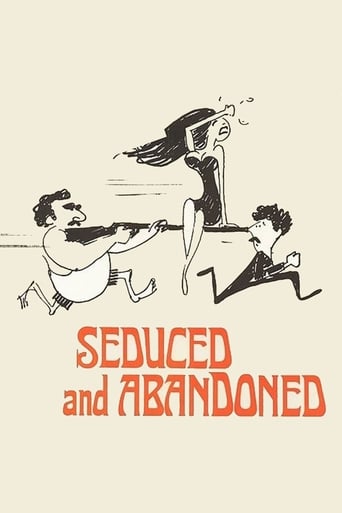
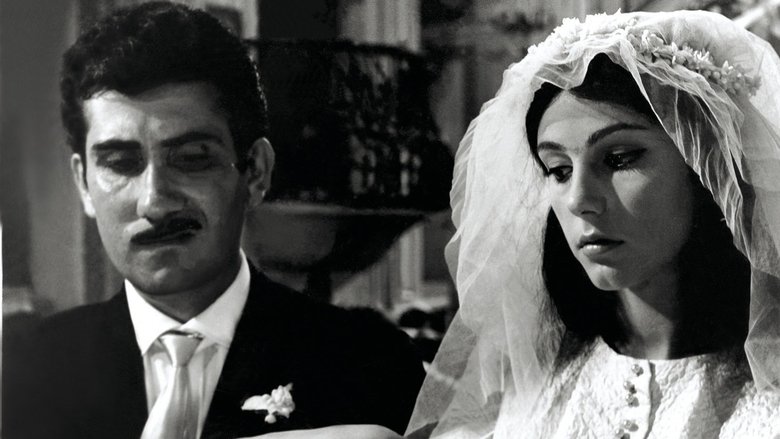
Seduced and Abandoned (1964)
The film presents the tale of Agnese Ascalone, daughter of prominent miner Vincenzo Ascalone, and takes place in a small town in Sicily. Agnese is seduced by her sister Matilde's fiance, and has a tryst with him for which she confesses and tries to repent, only to be discovered by her mother and father. The film is a dark satire of Sicilian social customs and honor laws, and is very similar to Divorce, Italian Style.
Watch Trailer
Cast
Similar titles

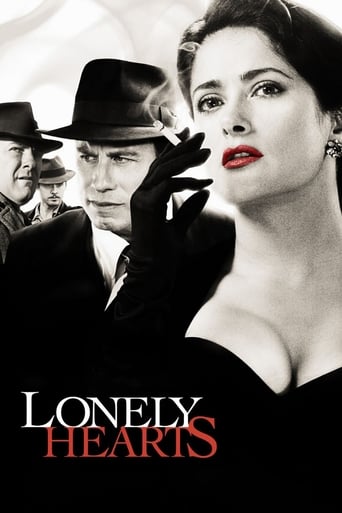

Reviews
Thanks for the memories!
People are voting emotionally.
Captivating movie !
Beautiful, moving film.
Pietro Germi is probably my favorite director of commedia all'italiana films, but to understand him, we have to understand commedia all'italiana, and to do that, we have to examine its roots, which lie in the Italian neorealist movement.Italian neorealism was forged out of the ashes of World War II. After suffering Mussolini's dictatorship and Italian Fascism, followed by Nazi occupation, followed by American occupation, Italy's identity as a nation had been decimated. The new identity it would build in the postwar years would be defined in every way by the war. In cinema, directors began shooting low-budget, inexpensive films with a realistic aesthetic. This was, on one hand, a product of necessity, due to the economic impact of the war, and, on the other hand, it was an artistic choice, since the neorealists believed in a cinema that echoed reality, which meant natural lighting, nonprofessional actors, and on-location shooting. In terms of the films' content, they often featured a deep sympathy with the working class, which was the hallmark of the Marxist school of thought that was quickly beginning to dominate Italian cinema. Having recently seen the other end of the political spectrum (i.e. fascism) up close and personal, the shift leftward to communism was virtually inevitable. The other notable aspect of these neorealist films is their highly melancholic tone and grim portraits of human despair. This, too, of course, was a result of the horrors seen during the war.Time heals all wounds, however, and by the mid-'50s, Italians were ready to wake from their doldrums and shake off the depression that had marked the years immediately following the war. Italian cinema would have to adapt. For a nation that was finally ready to laugh again, the influx of comedy into Italian films was only natural. And so the '50s saw the rise of a very unique brand of comedy that would come to be called commedia all'italiana ("comedy Italian style", borrowing its name from Germi's own 1961 film, "Divorce Italian Style"). Italian cinema now had the money and the motivation to make more commercial, more traditionally entertaining films, and while the neorealist mode of filmmaking had largely vanished by the mid-'50s, it survived through commedia all'italiana, which can best be described as an amalgam of the social realism that dominated the neorealist movement and a more conventional comedy. Commedia all'italiana, in a way, can be seen as half comedy, half neorealism, and while infusing neorealism with comedy may not sound like a good mixture, this blend of styles actually created some of the most enjoyable films in Italian cinematic history.The directors who made films during the era of commedia all'italiana, for the most part, had apprenticed under the neorealists, and as a result much of the neorealist approach permeated their films. While the films they made were certainly comedies, they retained a poignancy, and an element of pathos, that was characteristic of Italian neorealism, and which transcended the conventions of comedic filmmaking. These filmmakers, like many of the neorealists before them, were largely communists, although it's been suggested that many only joined the party in an effort to further their careers.And this, at last, brings us to Germi. Unlike fellow commedia all'italiana filmmaker Mario Monicelli, who was a committed, lifelong communist, Germi considered himself a social democrat. In other words, he believed in social equality, as did the left, but refused to subscribe to any specific political ideology. Germi and Monicelli both delivered indictments of society in their films, but unlike Monicelli's films, which operate on a sympathy with the working class, Germi's films are an attack on traditional, conservative values in Italian culture, specifically in the south.While Monicelli's films tend to take place in Rome or northern cities like Turin, the films I've seen by Germi are set in Sicily, where conservative values regarding female chastity and familial honor were, certainly at the time of the film's release, at a maximum. Germi's films seem to revolve around individuals who are compelled toward unscrupulous choices and ultimately cast into a state of chaos by the rigid values of the society they live in. In "Divorce Italian Style", the protagonist lives in a Sicilian society that will not allow him to divorce (not without losing his honor and shaming himself as a cuckold), and so the only course of action left to him is to murder his wife (a comic premise, of course). In "Seduced and Abandoned", the patriarchal head of a family goes to absurd lengths to try to preserve his family's good name by covering up the corruption of his daughter's virtue at any and all costs. In both films, we have a scenario in which completely normal, or at least non-calamitous events (the failure of a marriage, consensual sex between a fairly young man and a girl on the verge of adulthood) are elevated to a state of complete catastrophe by what Germi sees as society's ridiculous values and mores. "Seduced and Abandoned" is a scathing assault on these kinds of social mores, and despite Germi's refusal to engage a specific political doctrine, it is very much a political film. What makes it so successful, like "Divorce Italian Style", is the way Germi is able to execute his films in such a way as to make them enjoyable on two levels: as a meaningful reflection on the flaws and shortcomings of Italian society, and as pure, lighthearted, comedic entertainment. As the viewer, we have the prerogative of choosing which level to absorb. I recommend both.RATING: 8.33 out of 10 stars
Three years before SEDUCED AND ABANDONED, Pietro Germi made the wonderful DIVORCE, Italian STYLE. It was a truly amazing film that poked fun at the machismo of Italian men and posed the silly question "Maybe it's better for a man to kill his wife instead of divorcing her"! Despite the film's popularity, Germi's next film didn't come out until SEDUCED AND ABANDONED in 1964. While it's a very good film, it doesn't seem nearly as original as the last one and could easily have been entitled "Divorce, Italian Style Part 2". That's because the plot once again is about machismo and the notion that a "real man" is most concerned about keeping up appearances--just like in the previous film. Because of that, the film seemed much less fresh and more a continuation of the last movie.SEDUCED AND ABANDONED begins with the troll, Peppino, seducing his fiancée's very young sister, Agnese (aged 15). To make things worse, the girl becomes pregnant. The family is naturally furious and most of what the crazed father is concerned about is what the people in their town will think. So, he decides to concoct a rather elaborate plot to force Peppino into marrying Agnese. The trouble is, Peppino now says he won't marry ANY girl who isn't a virgin--even though HE was the one responsible for this! There's a lot more to the film than this and it is a satire on Italian morality. Very funny and the father (Saro Urzì) did a great job as the befuddled and angry man, but as I said above, it all seems so familiar.Overall, a good film and one I would have enjoyed more had I not seen DIVORCE, Italian STYLE. However, the two films have such a similar spirit and cover so much of the same material, I can only mildly recommend SEDUCED AND ABANDONED.
A beautiful sixteen year old girl is seduced by her older sister's fiancée, a conniving would-be bureaucrat. How far will the tradition-bound paterfamilias go to restore the family's lost honor? Well, if you're writer/director Pietro Germi, the answer is pretty darn farincluding perjury, kidnapping, murder, and bribing an eccentric baron with a new set of false teeth. Rarely has male hypocrisy and sexual double standards been so thoroughly lampooned. The film walks a fine line between comedy and tragedy, as the more and more traumatized sixteen year old girl is passed back and forth like damaged goods. Shot in beautiful black and white, on location. If you liked MAFIOSO, last year's great Italian rediscovery, you'll like this.
Granted, it's not as polished or swanky as "Divorce". No dashing Marcello, no Sophia's curves. Perhaps it dabs in paint too close to that of his more famous predecessor. Yet, what delightful film! The comedy of manners and mores can rarely get any better. And then the cutting, darker, a bit menacing undertones that reveal that fascinating Sicilia of times now lost forever: wow! I love both of Germi's gems but if I could take only one with me it would be "Sedotta e abbandonata". I also marvel at how well Germi, himself un Genovese, understood the very heart and soul of that lovely island off the boot of Italy. Almost perfect: who cares for perfection anyway?



